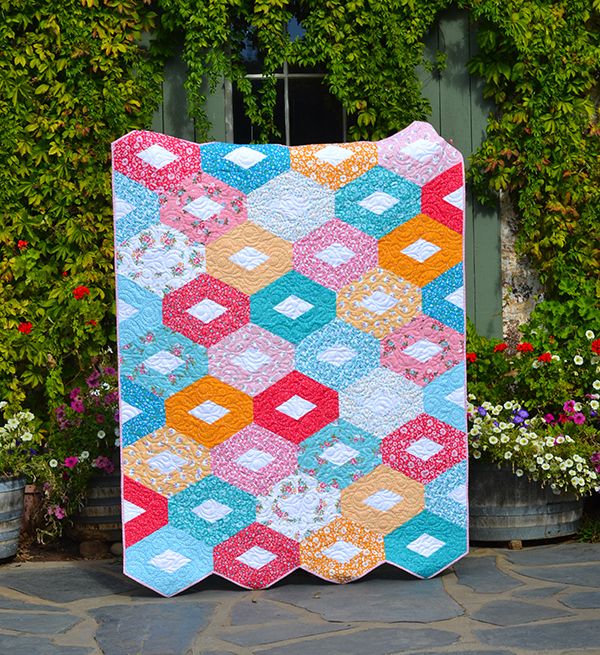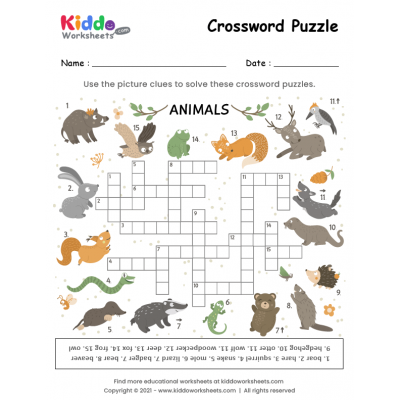
When you're looking for ways to make hand-eye coordination better, puzzles can help. Besides improving hand-eye coordination, puzzles also develop problem-solving skills and spatial perception. They also teach children new things. Continue reading to find out more about puzzles and how you can make them more educational and fun for your kids. In this article, we'll discuss three benefits of puzzles for kids. Here are just a few of them.
Puzzles improve hand eye coordination
Children who are able to solve puzzles can improve their hand-eye coordination. This is because children must use both their eyes and hands in order to cooperate. The brain uses these skills to help them perform actions, like walking and writing. Their puzzle-solving skills will be useful in the future. They also acquire fine motor skills like pinching or gluing and picking things up.
When children play with puzzles they learn to set goals, break down large tasks into smaller tasks, and how to accomplish them. They are taught to sort pieces by shape. This step-by–step approach teaches patience as well as the feeling of satisfaction when the last piece is arranged. This skill is vital for school success. Puzzle playing helps children develop social skills such as cooperation, communication, and empathy.

They improve problem solving skills
Puzzles can be used to develop problem solving skills. Some are for fun. Puzzles can help your child develop whatever interests them. According to some studies, puzzles can increase your child's critical thinking abilities and help them develop logical reasoning skills. Aside from being fun, puzzles can also help your child learn to work collaboratively and as a team. These are the three main reasons puzzles are great for young children.
Children are learning shapes, colors and patterns while they play with puzzles. Children can improve their cognitive development by sorting and applying the knowledge. They will learn how to interact with their environment, and what to do to improve their understanding of it. While they're at work, they'll be able communicate with other children and learn to cooperate.
They improve spatial perception
Puzzles can help children improve their spatial perception. It's not completely clear how. While some studies have shown that puzzles improve spatial thinking skills in children, others have not found any. The results of these studies showed that children who are engaged with puzzles and continue to play with them for longer periods of the day may be more likely than others to acquire spatial reasoning. Some of these benefits can be attributed to attention. Children with trouble shifting or sustained attention may have difficulty learning spatial reasoning.
The study's authors also found that boys engage with spatial play more often than girls. These activities include board games, puzzles, blocks and puzzles. It is still unknown how spatial reasoning is affected by these play activities. This discovery could have important implications for parents and educators, as well the toy industry. But, they warn that further research is necessary before any conclusions are drawn. The study also calls for further investigations to identify the most effective educational strategies for children.

They allow children to learn new skills.
Puzzles are a wonderful way to teach children something new. There are many educational benefits. Puzzles help children develop problem-solving skills by helping them to put pieces together. They teach children to take quick decisions and to use their observational skills. Puzzles are a great activity for kids who love learning new things. Here are some of the benefits puzzles can bring to kids. Find out how puzzles are helping kids learn new things by reading on!
Math, reading and other subjects are greatly affected by the cognitive skills that your child acquires while solving a puzzle. Puzzles can also teach children new shapes, animals, themes, and other concepts. These skills are crucial in any subject area so puzzles can be a great tool to help develop them. Children learn to recognize patterns through repetition, which helps them build confidence. Puzzles are a fun and enjoyable way to spend time together. One example of this is a game where you race through a maze and solve a riddle to foster family bonding.
FAQ
Where can I find free resources to learn more about hobbies?
There are tons of websites devoted to helping people discover new hobbies.
Here are some favorites of ours:
www.trythisathome.com - This site provides a list of over 100 different hobbies. It also provides information on how to get started in each one.
www.hobbyfinders.org offers a huge database with thousands of activities. You can search for your interests, skills, location, and many other criteria.
www.indiebazaar.co.uk - IndieBazaar is an online marketplace designed specifically for independent artists and musicians. The site features hundreds of products ranging from artwork to music gear.
www.pinterest.com/explore/hobbies - Pinterest is a social media network that lets users "pin" images they find interesting onto their boards. Boards let users organize what they like into particular categories.
www.reddit.com/r/Hobbies Reddit allows users to share links to articles, videos and other content on their social media platforms. Users can vote on which posts they think are most valuable.
How do I get started?
To start a new hobby, you must first decide what type of activity you would like to do.
Once you have decided on your subject, passion is the key.
It is essential to understand the reasons you want to start a hobby. It will provide you with direction and purpose.
Once you decide what kind of hobby you want, you can start planning.
Think about what equipment you'll need to purchase.
You might need to consider whether you should attend classes or seminars.
You should ensure that you have enough space to enjoy your hobby.
You might also consider joining a club. These groups can offer support and guidance.
Think about how much you'd need to spend on your hobby.
What are educational hobbies?
An educational hobby involves a sport or other activity where you can learn something from doing it. It could be anything from playing sports to learning how to play an instrument.
The key thing is that it should be fun and enjoyable for you. You don’t have to do it constantly, but you should consider what other activities you could be engaging in instead.
You also want to ensure you're not spending too much on these activities because they can end up costing you more than they're worth.
Why do we require hobbies?
Hobbies can be a part of your life because they provide you with time to unwind, recharge, think creatively as well as the chance to exercise, socialize, and relax. You can also learn new skills and develop lifelong interests.
Hobbies help us to find meaning and purpose in our lives.
These can often be a great way to get some extra time while you have nothing else.
They are fun!
If you don’t have the time to do a hobby, you likely don’t have any other hobbies.
Consider all of the possibilities available to your. Maybe you should consider starting a hobby.
What is a hobby that kids can do?
For kids, a hobby can be any activity that they are interested in doing as part of their everyday routine. Children might be drawn to, build, paint, create stories, play with toys or watch TV.
Many parents worry about their children getting into trouble if they have the freedom to do what they want. This is not necessarily true. Your child will not get into trouble if he or she is safe and doesn’t cause any harm to other people or themselves.
It's important for people to understand that just because they like something doesn't necessarily mean they'll choose it all the time. If they dislike writing but enjoy drawing pictures, they might opt to draw pictures.
There are many hobbies to choose from, so it's up you to find the one that interests you most.
Is it possible make a living from a hobby?
Not necessarily.
If you are interested in starting a business that is based on your hobby you can be a millionaire.
Let's say, for instance, you are a passionate cook. You love healthy food and decided to open a restaurant.
You only offer organic meals from scratch. Customers pay a small charge to cover the cost of ingredients and labor.
You can grow your clientele over time and eventually hire employees who will work alongside you.
You can eventually expand your menu to include vegan and gluten-free dishes.
You've now created a profitable business that allows you to live the life you desire.
You don't have a right to quit your job.
Instead, you could simply run your restaurant while still holding down your regular 9-5 position.
Statistics
- Almost 80% of people claim to have no hobby. (hobbylark.com)
- Studies show that just six minutes of reading can reduce stress levels by 60 percent. (oberlo.com)
- Much of this decline reflects the fact that teens are less likely to work today than in the past; among employed teens, the amount of time spent working is not much different now than it was around 2005. (pewresearch.org)
- The Role of the Mind in Sex, Dating, and Love: Men in the “humor” condition received phone numbers from 42.9% of the female participants and were refused 57.1% of the time. (time.com)
- In comparison, men in the “no humor” condition were refused 84.6% of the time and were only accepted 15.4% of the time. (time.com)
External Links
How To
How to Learn a Musical Instrument
There are many different ways to learn how music is played. You could go to a school or buy a book. You could also take lessons from an experienced musician, watch videos online, and so on. Here are some tips and techniques to help you learn if your goal is to create your own learning path.
-
Find something that interests or appeals to you. Try another instrument if you don't love any of the ones you see. If you don’t enjoy playing an instrument it will be hard for you to get into it.
-
Be patient. Learning anything new takes time. Don't expect to master everything right away. Instead, continue to practice each day.
-
Make sure you practice regularly. Even if you feel tired, keep practicing. This will make sure you don't forget the lessons you have learned.
-
Choose a good place to practice. Ideal is a quiet area where you don't have to disturb anyone else. You should also make sure there aren’t any distractions. For example, avoid having loud music playing nearby.
-
Have fun. Music is meant for enjoyment. It is important to have fun when practicing. You will be motivated to do more if you have fun.
-
Set goals. You will know what you need to do if you have goals. Therefore, you will have no excuse for failing.
-
Keep track your progress. List all of your successes as well as your failures. This will help you to improve your performance over time.
-
Take breaks. Sometimes you just need to take a break. Take breaks to allow you to reflect on things.
-
Ask questions. Ask others if there are any doubts or questions regarding the instrument. They may be able help you.
-
Learn by listening. Many musicians enjoy listening to their favorite songs and trying to imitate them. This helps musicians understand the fundamental concepts of the song.
-
Read books. Reading books will teach you more than watching videos or taking classes. Books also contain information that you cannot find elsewhere.
-
Join a band. Playing with others forces you to practice more. Plus, you'll meet people with the same interests as you.
-
View tutorials. Tutorials are short videos which explain many topics in great detail. These tutorials usually concentrate on one particular aspect of an instrument. Tutorials can help you understand complex parts of your instrument.
-
Explore different learning methods. Some people prefer to learn through lectures. Others prefer to read. Experiment until you find what works best for you.
-
Practice makes perfect. Nobody becomes an expert overnight. It is important to put in a lot of effort before you can become skilled enough to perform well.
-
You can learn from other musicians. Listening to other people play their favorite songs can help you learn faster.